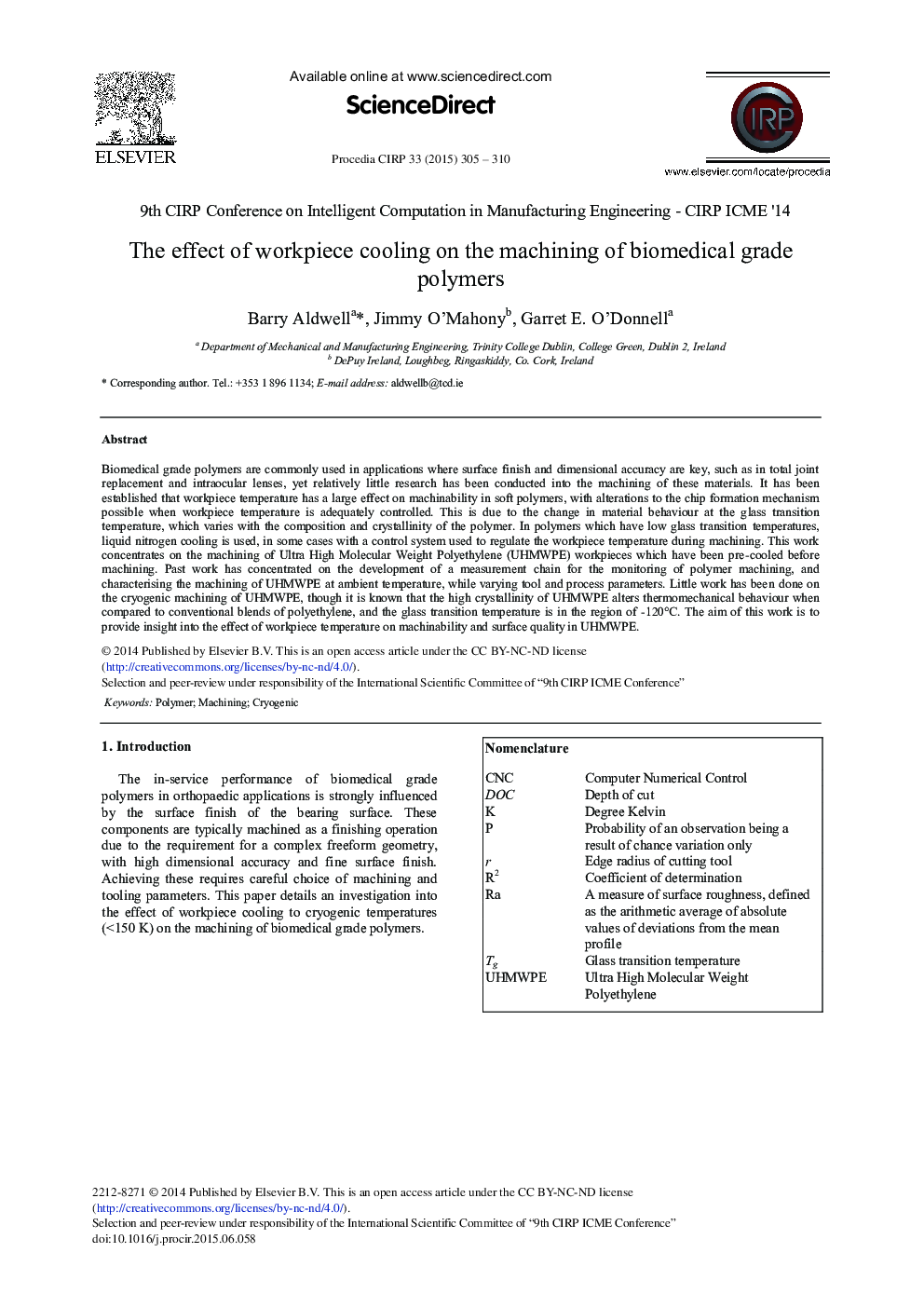| Article ID | Journal | Published Year | Pages | File Type |
|---|---|---|---|---|
| 1699333 | Procedia CIRP | 2015 | 6 Pages |
Biomedical grade polymers are commonly used in applications where surface finish and dimensional accuracy are key, such as in total joint replacement and intraocular lenses, yet relatively little research has been conducted into the machining of these materials. It has been established that workpiece temperature has a large effect on machinability in soft polymers, with alterations to the chip formation mechanism possible when workpiece temperature is adequately controlled. This is due to the change in material behaviour at the glass transition temperature, which varies with the composition and crystallinity of the polymer. In polymers which have low glass transition temperatures, liquid nitrogen cooling is used, in some cases with a control system used to regulate the workpiece temperature during machining. This work concentrates on the machining of Ultra High Molecular Weight Polyethylene (UHMWPE) workpieces which have been pre-cooled before machining. Past work has concentrated on the development of a measurement chain for the monitoring of polymer machining, and characterising the machining of UHMWPE at ambient temperature, while varying tool and process parameters. Little work has been done on the cryogenic machining of UHMWPE, though it is known that the high crystallinity of UHMWPE alters thermomechanical behaviour when compared to conventional blends of polyethylene, and the glass transition temperature is in the region of -120 °C. The aim of this work is to provide insight into the effect of workpiece temperature on machinability and surface quality in UHMWPE.
